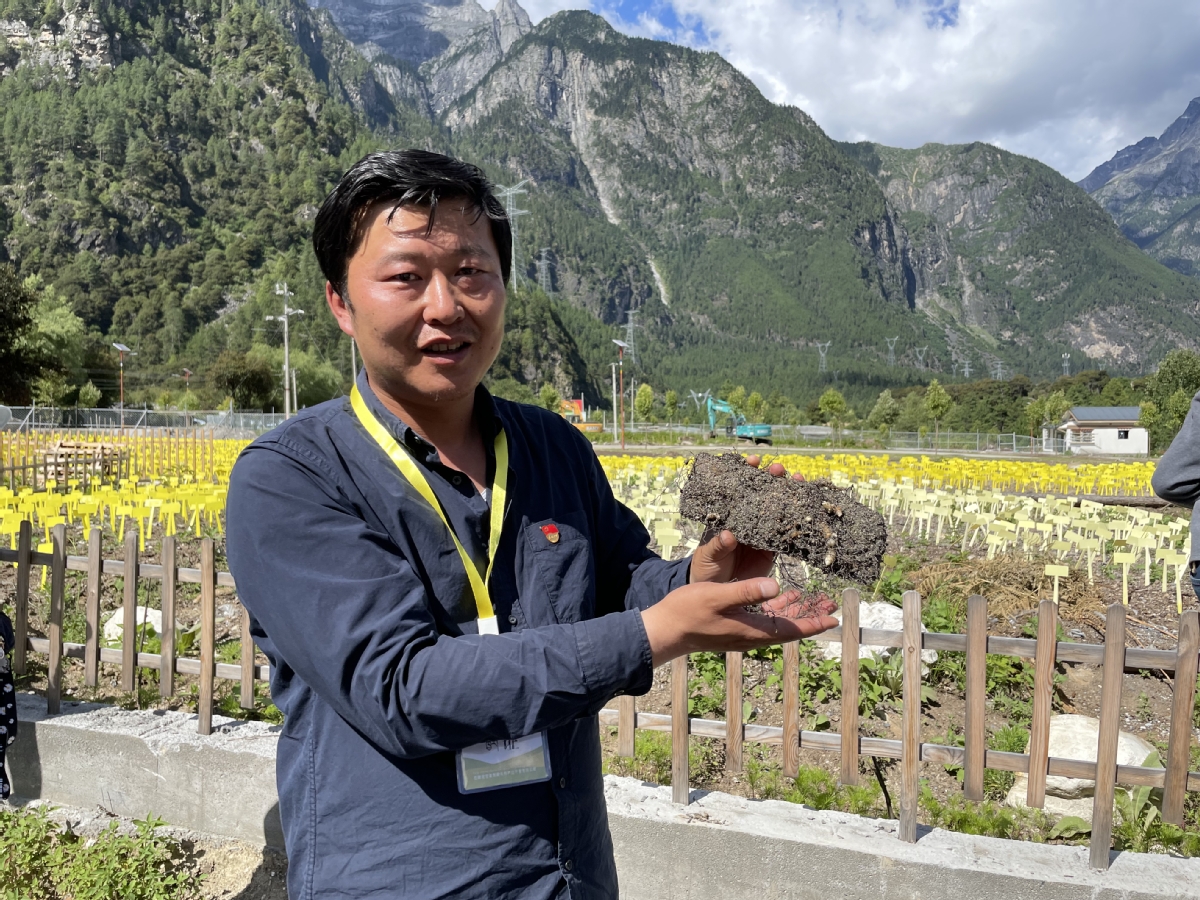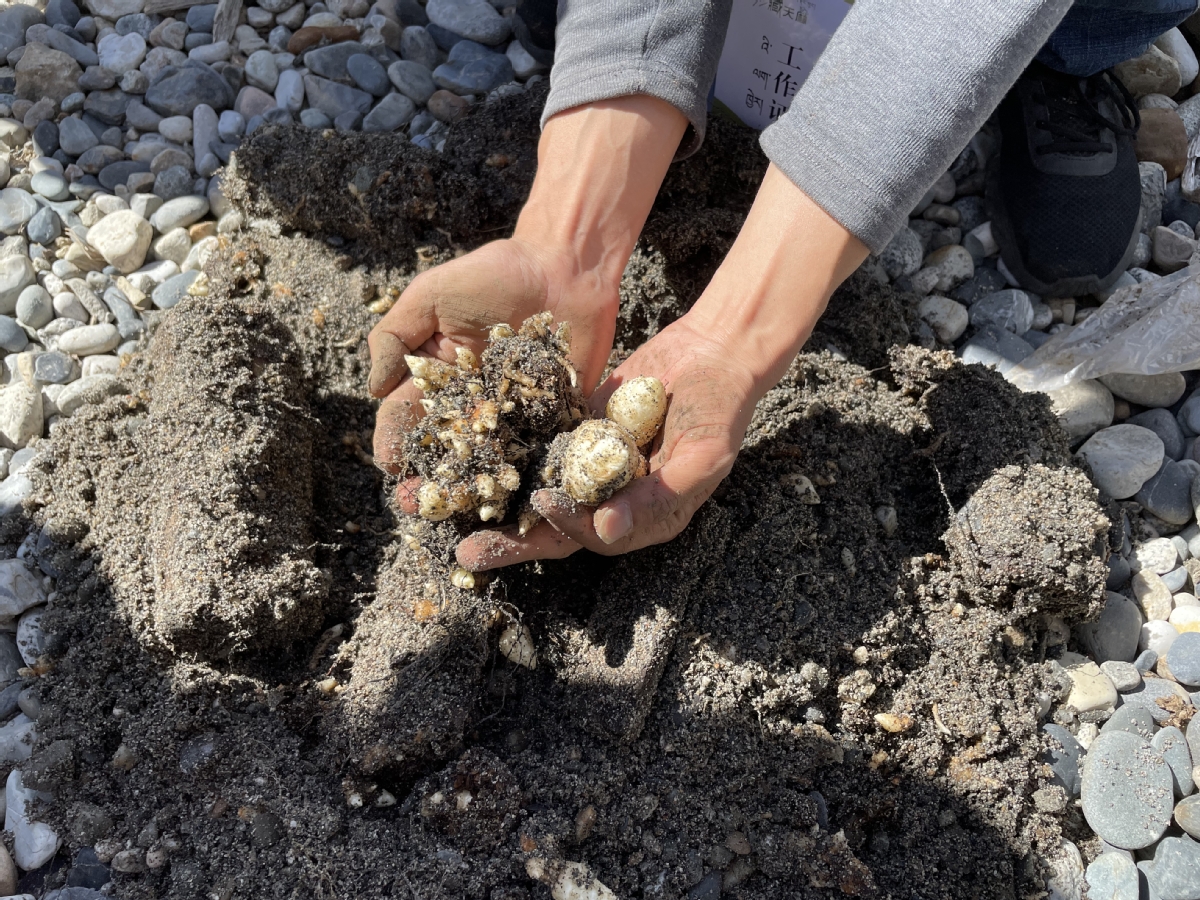
Chou Quanlei, from Southwest Forestry University in Yunnan province. [Photo by Zhang Yangfei/China Daily] Research on a new variety of a Chinese herbal medicine grown in Nyingchi, Tibet autonomous region, aims to help boost local economic development and increase local farmers' incomes. The herb is called gastrodia elata, a saprophytic perennial herb commonly used in traditional Chinese medicine for treating symptoms including headaches, anxiety, insomnia and vertigo. The herb is widely cultivated across the country, but Chou Quanlei, from Southwest Forestry University in Yunnan province, has developed a new variety of the herb by taking advantage of the unique natural conditions on the plateau. The new variety, dubbed Tibetan gastrodia elata, was developed from the wild herb found deep in the mountains. Its medicinal effect mainly comes from the metabolites produced while resisting its surrounding climate. The plateau's particularly harsh environment — lack of oxygen, low temperatures and a thick permafrost layer — significantly boosts the amount of metabolites in wild gastrodia elata, making its medical efficacy relatively higher than ones grown in other areas, Chou said. With its vast forestland, Nyingchi has an abundance of wild gastrodia elata. Chou's research team finds, digs and takes back the wild herbs with seedlings and pollinates them by hand. When the fruit is ripe, the husks will crack open and produce the seeds. Chou said gastrodia elata grow in symbiosis with the honey fungus, invading the fungus' root system so that the plant can absorb nutrients from it. Chou has been studying the processing technology of the honey fungus since 2008 and has discovered the best sub-species of the fungus that can ensure the largest production of Tibetan gastrodia elata. 
Tibetan gastrodia elata seed. [Photo by Zhang Yangfei/China Daily] In April last year, he led his team into Bomi county in Nyingchi and set up a company dedicated to promoting the Tibetan gastrodia elata industry. The company is also cooperating with Southwest Forestry University and Kunming University of Science and Technology, both in the industrial application of the honey fungus and the selection and breeding of Tibetan gastrodia elata seeds. It is also working with the Kunming Institute of Botany, a subsidiary of the Chinese Academy of Sciences, which is helping Tibetan gastrodia elata obtain national designation as a new variety. To help local residents raise their incomes, the company has hired farmers and herdsmen to collect wild gastrodia elata, and it has also established a training center to teach them planting techniques and provide one-on-one instruction to those who want to become more professional planters. Each worker will receive from 150 yuan ($23) to 300 yuan per day, depending on the proficiency of their skills. By the end of last year, Chou's company had cultivated about 33 hectares of the herb, gained an output value of 26 million yuan, employed 2,800 people and helped local farmers and herdsmen increase their income by 2.1 million yuan. "Tibetan gastrodia elatais is of very high quality, so there is no worry about the lack of a market. We need to continue to take advantage of local resources, help local people learn the techniques and produce the best gastrodia elata possible on this pure land of Tibet," Chou said. Source: China Daily
|







7740f3b5-9ecb-438e-9052-76cb2d4bb671.jpg)

